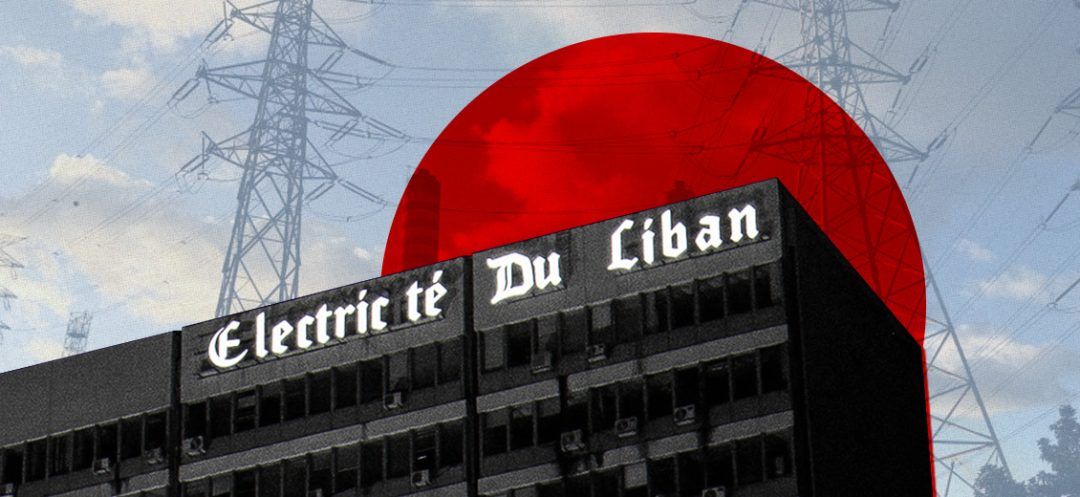
The Lebanese are now accustomed to seeing the threat of a total blackout reemerge occasionally, often accompanied by the threat of the shutdown of vital public facilities. This situation was narrowly avoided on Thursday thanks to the intervention of the Iraqi Prime Minister, who authorized the unloading of fuel before Lebanon paid the amounts due. 'Normal' rationing should be restored within twenty-four hours.
Every so often, and especially in the summer when energy consumption peaks, the infamous threat of a total blackout resurfaces. This situation was narrowly avoided on Thursday, following an intervention by the Iraqi Prime Minister, who authorized the unloading of fuel before Lebanon paid the amounts due. But what is really happening? What is certain is that the Lebanese still do not have electricity through the public provider and are forced to resort to generators or solar energy systems.
In fact, Iraqi Prime Minister Mohammad al-Soudani authorized the supply of fuel to Lebanon on Thursday before the funds were disbursed by the Banque du Liban to avoid a total blackout. Thus, diesel was delivered to the Zahrani and Deir Ammar power plants. This decision followed several contacts made to resolve the fuel payment crisis and spare Lebanon total darkness.
Contacted by This Is Beirut, the management of Électricité du Liban (EDL) confirmed that they received the green light for the ships to be unloaded, specifying that Deir Ammar will be the first plant to be supplied. The unloading process takes at least twenty-four hours. Additionally, the state of the sea must be considered; if the waves are too strong or the sea too rough, the cargo cannot unload the diesel.
Since July 6, EDL had been forced to shut down a production unit at the Zahrani plant and completely stop the Deir Ammar plant to preserve its stock. These measures allowed for approximately four additional days of power, until Thursday. These units will be put back into service once the cargo is unloaded, thus restoring the supply.
It should be noted that EDL announced on Monday the implementation of preventive measures until the receipt of the second part of the diesel shipment allocated for June 2024, to avoid a blackout. In a statement, the public provider explained that it had to resort to preventive measures to prolong the energy production period for citizens as much as possible and maintain continuous electrical supply, twenty-four hours a day, for vital facilities such as the airport, the port, water pumps, and sewage systems.
Back-and-forth between the Ministry of Energy and the Banque du Liban
For the public provider, the delay in delivery is due to a delay in the disbursement of funds by the Banque du Liban (BDL) to EDL, preventing it from paying for the necessary diesel. The Ministry of Energy accused the BDL, which in turn shifted the blame back to the Ministry of Energy, claiming that there were no funds available for EDL.
Thus, the first vice-governor of the Banque du Liban, Wassim Mansouri, assures that "EDL, like the Ministry of Energy, could obtain all the funds from the Central Bank, but neither has the necessary funds to buy Iraqi oil." In an interview with the television channel Al-Jadeed, Mansouri raised another issue: the contract with the Iraqi side for the import of crude oil ended a long time ago. He believes that what is being done today, borrowing from Iraq to import crude oil, has no legal basis. He reminded that no minister can borrow without a law issued by Parliament. He also added that the budget for the 2024 fiscal year does not include an amount allocated for the Iraqi oil requested by the minister of energy.
For his part, the outgoing Minister of Energy, Walid Fayad, assured This Is Beirut that "the contract with Iraq is financed in services and not in cash, and is carried out through monthly transfers via the public treasury account under the Ministry of Finance (and not EDL) to the Iraqis' account at the BDL. However, the financial institution has not made these transfers since the beginning of the year because it is associated with the execution of the contract, which needs to be covered by a law passed by Parliament. The bill was sent by the Council of Ministers to Parliament on January 17, 2023, but has not yet been approved."
Fayad also clarified that the EDL account currently has 80 million dollars, noting that any delay in collecting electricity bills is due to the fact that "the acting governor has not yet set the exchange rate on which the bills should be based. Therefore, EDL has not been able to issue these bills and the corresponding money has not been collected."
In the same context, it should be noted that electricity production in Lebanon currently relies on the Zahrani and Deir Ammar plants, while the Jiyeh and Zouk plants require maintenance work. Zahrani and Deir Ammar receive monthly diesel supplied to EDL by the Ministry of Energy under the exchange agreement concluded between Iraq and Lebanon on July 23, 2021. This agreement, which came into effect in September 2021, stipulates that Iraq will supply fuel to Lebanese power plants under advantageous conditions, with a quantity set at 100,000 tons per month. However, due to the high sulfur content of Iraqi fuel, which cannot be directly used in Lebanese plants, Lebanon buys a compatible type of fuel from other suppliers selected by tender. In exchange, these suppliers receive the Iraqi fuel.
Read more



Comments